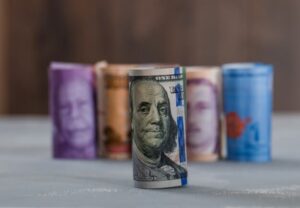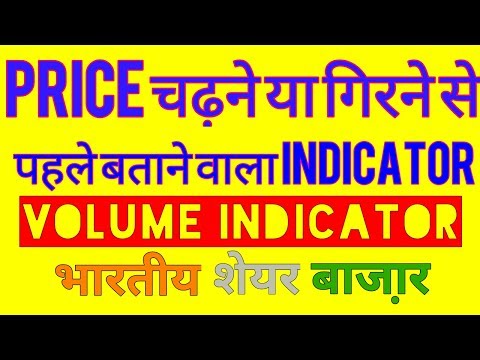Contents
Delta is a measure of the amount an options price would be expected to change for a unit change in the price of the underlying instrument. Operational risk is the risk of loss occurring as a result of inadequate systems and control, deficiencies in information systems, human error, or management failure. Derivatives activities can pose challenging operational risk issues because of the complexity of certain products and their continual evolution. The measurement process starts with marking to market of risk positions. This is necessary to establish the current value of risk positions and to recognize profits and losses in the books of account.

Swaps usually include cash flows based on notional principal amounts like bonds or loans but the instruments can vary. A derivatives contract is one of the best diversification and trading instruments used by both investors and traders. Based on its structure, it can be broadly divided into the following two categories; Contingent claims, otherwise known as options and forward claims, such as exchange-traded futures, swaps, or forward contracts. From these categories, swap derivatives are effectively used to exchange liabilities.
It is desirable that the board of directors and senior management understand the risks inherent in the derivatives activities being undertaken. All permitted derivative transactions, including roll over, restructuring and novation shall be contracted only at prevailing market rates. Mark-to-market gain/loss on roll over, restructuring, novation etc. should be cash-settled. Assume that firm A is based in the United States and company B is based in the United Kingdom.
Cross Currency Swap vs. Foreign Exchange Swap
The product offered to the user shall be consistent with the objective and risk appetite of the user. In case a product is not found suitable for a user in the assessment of the market-maker, the user shall be informed of the opinion. If the user nonetheless wishes to proceed, the market-maker shall document its analysis and its discussions with the user.
- Finally, if the buyer is wishing to exit the swap, he can enter into an offsetting swap with the original counter party or whoever offers the best price.
- The results of the stress testing should be reviewed regularly by senior management and should be reflected in the policies and limits which are approved by the board of directors and senior management.
- RBI swap auction falls shy of targetThe dollar swap auction pumped in $650 million out the $2 billion targeted.
- Since the financial crisis, this risk has been mitigated to an extent.
In this case, the company issuing the bonds will benefit greatly from the swap if the rates rise significantly over the next three years. Is part of the IIFL Group, a leading financial services player and a diversified NBFC. The site provides comprehensive and real time information on Indian corporates, sectors, financial markets and economy.
Reputation risk is the risk of loss arising from adverse public opinion and damage to reputation. Regulatory risk is the risk of loss arising from failure to comply with regulatory or legal requirements. The risk management system and the effectiveness and independence of the risk control unit should themselves be subject to regular review by internal audit. Interest rate derivatives – Interest Rate Swap , Forward Rate Agreement , and Interest Rate Future . Market-makers should have a ‘Suitability and Appropriateness Policy’ vis-à-vis users in respect of the products offered, on the lines indicated in these guidelines. Elearnmarkets is a complete financial market portal where the market experts have taken the onus to spread financial education.
Commodity Swaps
Commodity swaps involve the exchange of a floating commodity price and consists of a floating leg component and a fixed leg component. The former is linked to the market price of the underlying commodity while the latter is specified in the contract as the producer of the commodity decides to pay a floating rate . The most commonly used commodity for these swaps is crude oil and generally involve large institutions due to the nature and size of the contracts. A commodity swap is usually used to hedge against the price change in the market for crucial and valuable commodities like livestock, oil, etc.

Essentially, Swap Trading works when two parties agree to swap their cash flows or liabilities based on two separate financial instruments. Although there are many types, the most common kind of swap is known as an interest rate swap. A swap is not standardised and does not trade on public stock exchanges, and it is not common for retail investors to engage in a swap.
Swap contracts are used by corporate finance professionals for hedging risk and minimizing the uncertainty of certain operations. For example, a currency swap contract can be used for hedging a project which is exposed to the exchange rate risk. Swap contracts are OTC contracts which means that they are traded Over the Counter. These are not standardized contracts are therefore are not traded on the exchanges. These contracts are between two parties and involves exchange of pre-agreed cash flows of two financial instruments, where each stream of the cash flow is referred to as a leg. Financial Swaps are derivative contracts between two parties where one of them swaps or exchanges the value of cash flow of one asset with another.
Credit Default Swaps
Management should respond promptly to audit findings by investigating identified system and internal control weaknesses and implementing corrective action. Thereafter, management should periodically monitor newly implemented systems and controls to ensure they are working appropriately. Failure of management a swap that involves the exchange to implement recommendations within an agreed timeframe should be reported to the Audit Committee. Audit should be conducted by qualified professionals, who are independent of the business line being audited. Audit should be supplementary and not be a substitute for risk control function.
The co. will fund its payment of principal through the swap from accumulated sterling earnings from its operations and will use the dollar principal, it receives in exchange, to repay its dollar borrowing. Futures allow the buyer to buy or sell something at a specified price on a future date. Options give the buyer the right but not the obligation to buy or sell something at a specified price on or before an expiration date.

These three products can be offered only for the purposes specified by RBI and not otherwise. Use of any of these products in a structured product not conforming to the specific purposes is not permitted. Therefore, foreign exchange swaps are less risky because the swapped amount acts as collateral for repayment, while cross currency swaps are slightly riskier. They involve an element of default risk in the event the counterparty fails to pay interest payment obligation at maturity or pre-decided interval, leading to default on the loan.
It is important that entities should establish separate limits for settlement risk. The amount of exposure due to settlement risk often exceeds the credit exposure arising from pre-settlement risk because settlement of derivatives transactions may involve the exchange of the total value of the instrument or principal cash flow. Settlement limits should have regard to the efficiency and reliability of the relevant settlement systems, the period for which the exposure will be outstanding, the credit quality of the counterparty and the entity’s own capital adequacy. Cross currency swaps are frequently used by banks, corporates and Importers and exporters to hedge their currency exposure and secure physical trades as well. Consider a corporation that has US dollars but requires British pounds to start a new business in the UK.
Advantages of Swaps
Market risk is the risk of loss due to adverse changes in the market value of an instrument or portfolio of instruments. Such exposure occurs with respect to derivative instruments when changes occur in market factors such as underlying interest rates, exchange rates, equity prices, and commodity prices or in the volatility of these factors. Bangladesh’s Central Bank has approved a $200 billion currency swap facility to Sri Lanka.
Most swaps derivatives don’t necessarily involve cash flows that are based on a principal amount that could be a bond or a loan. For instance, Argentina and China have used this swap, allowing China to stabilise its foreign reserves. Another example is the use of currency swaps by the federal reserve of the USA engaging in aggressive currency swap agreements with European central banks. This was done during the 2010 financial crisis in Europe to stabilise the euro that had been falling as a result of the Greek debt crisis.
The value/price of such contracts depends upon certain underlying assets. This type of swap involves the exchange of a floating commodity price for a certain set price over a period of time that is previously agreed upon. Similarly to hedge against the fluctuation in currency exchange, the enterprises involved in international business enter into currency swaps.
Open A Demat Account
The fixed-for-fixed currency exchange entails swapping one currency’s fixed interest payments for another’s fixed interest payments. The keen-eyed among you might have noticed us mention that the payment in the example was offered on the “notional” one million. This is because, in an interest rate swap, no debt actually exchanges hands, https://1investing.in/ simply the difference between the debt payment does. In the example mentioned above, neither company takes on the responsibility of each other’s debt or the debt amount. They simply enter into an agreement that is tethered to their individual loan agreements, resulting in them being able to switch their repayment structures.
The payments are usually made monthly, quarterly or annually but the time interval can be set in any manner by the parties involved. A swap Derivative is a contract wherein two parties decide to exchange liabilities or cash flows from separate financial instruments. Often, swap trading is based on loans or bonds, otherwise known as a notional principal amount. However, the underlying instrument used in Swaps can be anything as long as it has a legal, financial value. Mostly, in a swap contract, the principal amount does not change hands and stays with the original owner.
